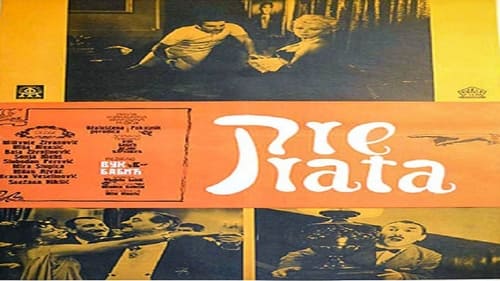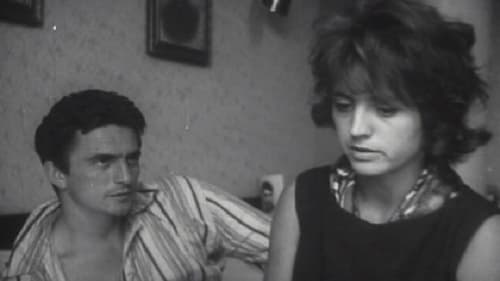Slavko Simić
出生 : 1924-07-21, Novi Bečej, Serbia
死亡 : 2007-11-20

Otac prvog službenika
Two idle clerks who do senseless office job of punching cards, and who are not particularly fond of each other, decide to play the game "come up with the most stupid line possible" in order to break the boredom. Then they call random people over the phone and tell this line. Harmless game of theirs creates general confusion among people, which leads to anti-terrorist intervention, police interrogation, loss of state credit and the change of government. The two, of course, know nothing about the series of comic and incredible events that follow without stop.

The story of a young writer who tries to save his personal identity while facing the corrupted environment and temptations of a love affair.

Gligorijev deda
The story of a war-orphan, who remembers first post-war days, his stay in Home for war-orphans, his teachers, friends, and mostly his "only brother".

Mihail Averjanič
A doctor from provincial town in Tsardom of Russia meets his former student in Ward 6, where the story takes place. Impressed by his rebellious spirit and clever remarks, he tends to spend more time with him while also indulging in meditation, only to be ridiculed by his fellow colleagues. Based on a Chekhov's work of the same title.

Djed Rade
Sfaira (1971-1984) dedicated to Pythagoras and Plato is a homage to two of his favourite spheroids: the Earth and the Sun.

Zuba Bojić
Popular TV series has been reedited into a theatrical film with additional material that has not been seen on TV before. The film is a homage to the legends of the Yugoslav theater, some of whom are no longer alive. The story takes place in the town for ten years from 1931 to 1941 and shows the conflict of progressive and humane ideas with fascism. A film made from the TV series of the same name (nine episodes) realized in 1976 and shown in 1977.

Frulaš Mitar
Before and during WW II and the German occupation of Serbia, in a village in Vojvodina, inhabitants are separated based on their nationality. Local Volksdeutschers (ethnic Germans) enlist with the Nazi occupiers. The village bum, Leksi, jumps at the opportunity to put on a uniform and parade around with a gun. Leksi gets into an argument with villagers Marko and Joca, who devise a plan to get rid of him. At the same time, Marko tries to seduce Leksi's wife, Anika.

Lekar
The tragic story of a heavyweight prizefighter at the end of his career.

Mihail Averjanič
A study of the mental breakdown of a doctor in a remote rural village. He believes himself intellectually superior to everyone except for a political prisoner in a mental ward. This is a metaphor on life under repressive governments, conformity versus individual expression.

Krajnović
Political prisoners imprisoned in Yugoslavia will try to escape from prison by digging a channel under the ground and join the partisans.

Profesor matematike
The story of the birth of a love between two young people, about its duration, with all the difficulties and beauty that it brings, the closing of that love because of conflicts with exaggerated dynamics and false values of contemporary life.

Radikal
Engineer Maric finds out about an affair between his wife Rina and his best friend, a lawyer Novakovic. Maric leaves the house with suicidal intentions. At the big funeral, Novakovic consoles unfortunate Rina, while in the funeral procession a whole bunch of suspicious people try to claim close relations with the deceased one in order to get hold of a piece of his inheritance.

Dottore Kolarov
"Andremo in città" (We'll Go to the City) is a 1966 Italian drama film directed by Nelo Risi. It is based on the novel of the same name by Edith Bruck, Risi's wife. Bruck, a Hungarian concentration camp-survivor, settled in Italy after the Second World War and wrote about her experiences in autobiographical and fictional formats.[1] The film stars Geraldine Chaplin and Nino Castelnuovo.

Redzhep
Three partisans come to a fascist held town at the end of the war to create diversions. Their protector is tortured to reveal their whereabouts, but the partisans arrive in time.

Slavko (segment "Srce")
Three stories (Love, Heart, The Hoop) set in the urban, alienated world of a big city. It tells how thin is the line between melancholy and depression. This is the only officially banned movie in history of Yugoslavia.

Šandor
A group of oil drillers of the Factory B, focused on success rather than praise, strive to find the oil despite the decision on the suspension of the drilling works.













